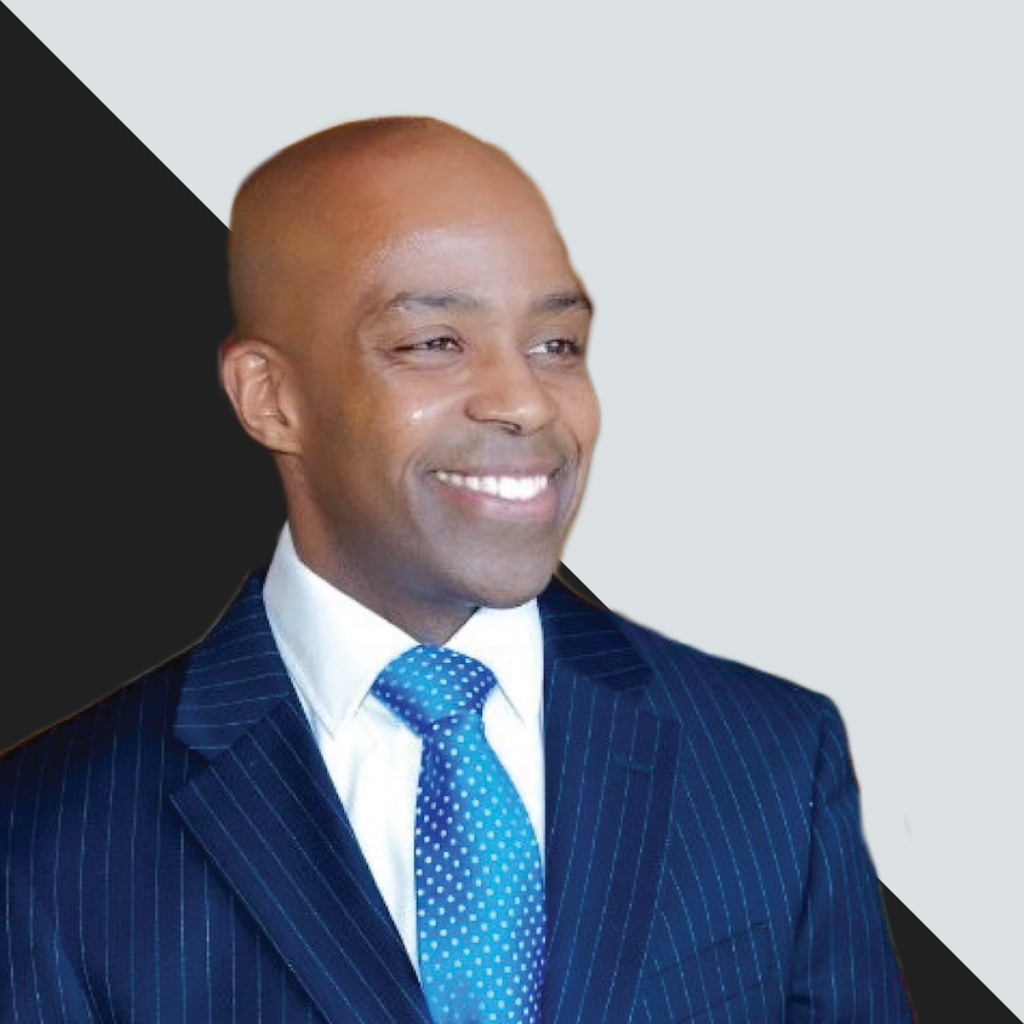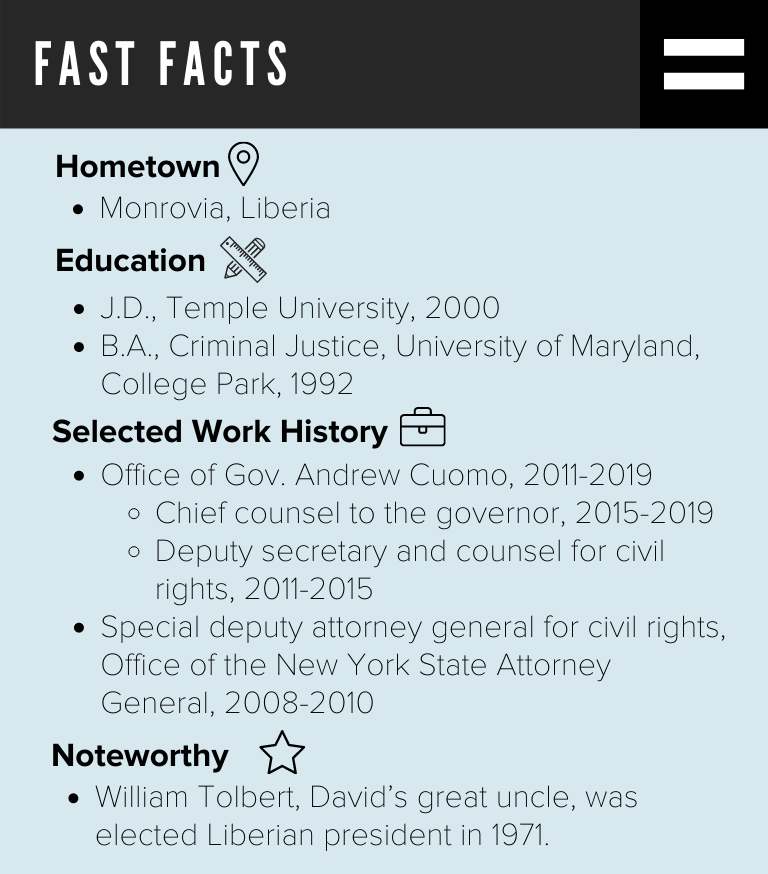President of the Human Rights Campaign
Fast Facts

LGBTQ+ Activist

LEARN MORE
Vignette, a service through National Journal Research, is an essential tool for government affairs teams that need to understand the people behind the policies.
Click here to request a demo of the Vignette database, or email njvignette@nationaljournal.com to speak to someone about your access.
In 2019, Alphonso David became the first immigrant and the first Black man to head the Human Rights Campaign, the nation’s largest LGBTQ advocacy organization. But that’s far from the only notable chapter in his biography.
Born in Silver Spring, Maryland, David moved with his family to Monrovia, Liberia, at 1 year old. His great uncle, William Tolbert, was elected Liberian president in 1971, and his father was elected the mayor of Monrovia in 1977. In 1980, Tolbert was assassinated in a military coup, and David’s father was incarcerated; his family spent 18 months under house arrest before seeking asylum in the United States, ultimately relocating to Baltimore.
David attended the University of Maryland and Temple University Law School, clerked for a federal judge, and joined a white-shoe firm. Then came Lawrence v. Texas, the landmark 2003 Supreme Court gay-rights case, which served as something of a political awakening for David. He joined the Lambda Legal Defense and Education Fund, where he worked on New York’s first marriage-equality case, Hernandez v. Robles.
After shifting to the attorney general’s office and then the governor’s office, he led the state’s victory on marriage equality, then oversaw the subsequent bureaucratic changes to marriage certificates and documents.
Approach and Motivations
Excerpted from Alphonso‘s Vignette profile
Passion for civil rights stems from his background witnessing political unrest and his personal identity; views policy changes through the lens of inclusivity
- Raised in Liberia, David’s childhood experience witnessing the violent coup d’etat of 1980 sparked his interest in freedom, democracy, and rule of law; his later feelings of “otherness” as a gay African immigrant in the U.S. inspired him to enter civil-rights law
- Credits the 2003 Supreme Court case Lawrence v. Texas, which ruled that prohibitions on same-sex sexual activity violate individual rights to privacy, as a turning point that led him to pursue LGBTQ+-rights litigation; felt that LGBTQ+ advancements were being made while he sat on the sidelines, and he wanted to immerse himself in the cause
- Legislative perspective informed by his Black, immigrant, and gay identities; pushes for inclusivity through a holistic approach
- Sees implementation of LGBTQ+-inclusive policies as practical matters that allow people to get married, join the military, and be employed, and as indications that the government values their lives
- Credits his success to understanding his worth and capabilities, an idea that he translates to an HRC mentorship program for LGBTQ+ refugees
Not a Vignette subscriber? You can purchase a digital book with in-depth profiles on everyone featured in this special report.
To learn more about Vignette, or see the platform in action, request a demo here.

